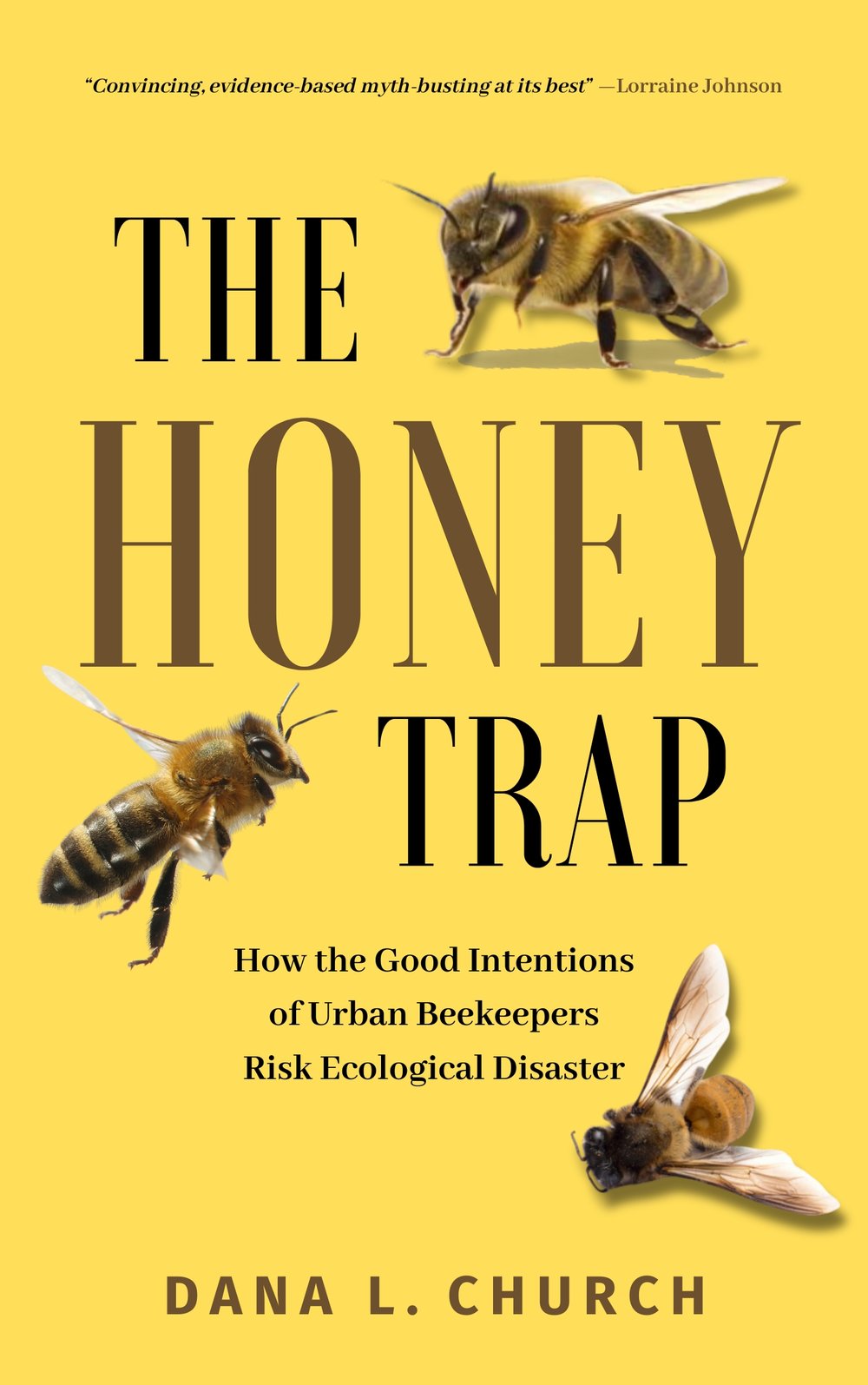The Honey Trap
How the Good Intentions of Urban Beekeepers Risk Ecological Disaster

Exposing the misguided assumptions behind an altruistic trend.
The last decade has seen an explosion of urban beekeeping in the US, Canada, and Europe, a well-intentioned response to perceived threats to the global honey bee population. Many thousands of people have taken up this seemingly environmentally friendly hobby, tending backyard and rooftop hives (or paying a company to do so) and encouraging honey bees to make honey and pollinate flowers. What could be wrong with that?
Quite a lot, in fact. In The Honey Trap, scientist and author Dana Church demonstrates that despite reports to the contrary, honey bees are nowhere near extinction. Rather, their nurturing by urban beekeepers is having far-reaching and potentially devastating consequences for the 19,999 other species of bees on the planet, with knock-on effects for plants, both cultivated and wild, and our ecosystems more generally.
With engaging storytelling and a wealth of knowledge about bees and their ways, Church unravels the complexities of human interactions with our winged friends and demonstrates how dangerously selfish our thinking can be. It's a wake-up call for humanity to embrace sustainable practices and protect these vital pollinators before it's too late.

Dana L. Church is an author with a PhD in animal cognition, and merges her passion for animals with a talent for storytelling to make science accessible for all ages. Her debut book, The Beekeepers: How Humans Changed the World of Bumble Bees was published in 2021 by Scholastic Focus, and explores the intricate relationship between humans and bumble bees. She currently resides in Waterloo.
